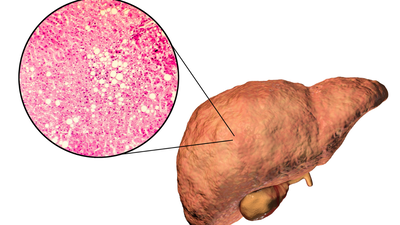Silent heart attack alert: How bloating, burping, and chest discomfort could signal a hidden risk; expert reveals hidden warning signs |

Many people often ignore chest discomfort, bloating, or frequent burping, assuming they are minor digestive issues. However, cardiology experts caution that these seemingly harmless symptoms can sometimes signal a much more serious problem, a silent heart attack. Dr Naveen Bhamri, senior cardiologist at Max Super Speciality Hospital in Delhi, with over two decades of experience, explains that what is commonly dismissed as gas or indigestion could in fact be an early warning of a potentially life-threatening cardiac event. Silent heart attacks often occur without the classic intense chest pain, making them easy to overlook. Awareness of these subtle signs and seeking timely medical evaluation can be crucial in preventing serious complications or even death.
Silent heart attack signs often mistaken for indigestion
Silent heart attacks, unlike typical cardiac events, often develop without the classic crushing chest pain. Dr Bhamri explains that in India, people frequently associate upper abdominal discomfort or a feeling of heaviness with indigestion or gas. This misperception can delay timely medical attention.
Symptoms like persistent bloating, excessive burping, or a heavy sensation in the chest, especially when repeated over time, should not be ignored. Elderly individuals, and those with long-term hypertension or other cardiovascular risk factors, are particularly vulnerable to silent heart attacks.
How silent heart attacks can feel like heartburn
One of the challenges in recognising silent heart attacks is that they often mimic heartburn. As reported, notes that both conditions can present similar sensations, such as chest tightness, burning, or discomfort. Heartburn typically results from digestive acid moving into the oesophagus, often triggered by meals or lying down, and can usually be relieved with antacids.However, when chest discomfort is persistent, unexplained, or accompanied by other subtle symptoms, medical evaluation is crucial. Even mild or intermittent pain could signal an impending cardiac emergency. The key is not to dismiss recurring discomfort as simple indigestion.
Subtle heart attack symptoms that require attention
Silent heart attacks may manifest with less obvious signs than the stereotypical “crushing” chest pain. Symptoms can include:
- Mild pressure or discomfort in the chest
- Nausea, indigestion, or upper abdominal pain
- Fatigue or unexplained tiredness
- Pain radiating to the arms, neck, jaw, or back
- Shortness of breath, cold sweats, or dizziness
Women, in particular, may experience these subtle symptoms, which are sometimes mistaken for menopause or other benign conditions.Dr Bhamri stresses that individuals with high blood pressure, diabetes, obesity, or a family history of heart disease should be extra vigilant. Regular heart check-ups and timely consultation with a cardiologist can prevent serious complications.
When digestive discomfort could signal a heart attack
While most cases of gas or heartburn are harmless, recurring or unusual digestive symptoms may indicate an underlying cardiac issue. Experts unanimously agree that any persistent upper abdominal or chest discomfort, especially in high-risk individuals, should prompt immediate medical assessment.In these scenarios, it is far safer to rule out a heart attack than to ignore early warning signs. Awareness of subtle symptoms, timely diagnosis, and proactive care can make the difference between a manageable condition and a life-threatening event.Also Read | ‘Heart failure is more common than you think’: Cardiologist reveals signs and symptoms to detect early and prevention tips






